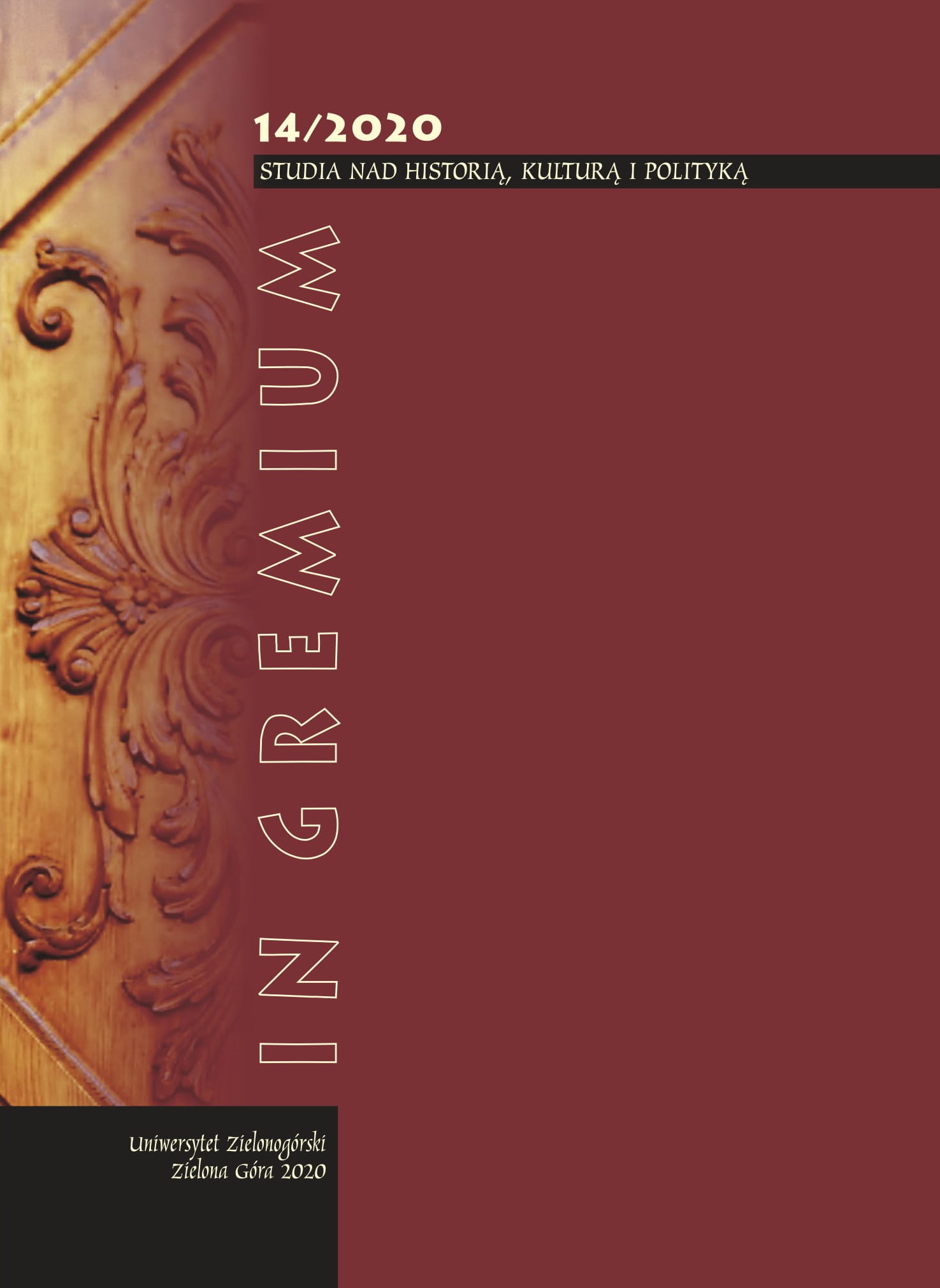Abstract
The paper uses the theoretical framework of cultural memory to explain Augustus’ construction of Forum Augustum. The construction of Forum Augustum was a central project in the princeps; programme as it presented his own version of Roman history giving a special place to his family and generals closest to this vision of the ideal Roman. At the same time, the evidence for Augustus’ religious reforms shows a decisive ruler who was very involved with the intricacies of Roman religion. Based on a passage of Dio we are able to see that Augustus also initiated a change in the festival of the Liberalia so that boys transitioning into manhood are inspired to great deeds by seeing his version of the great men of the past in his new Forum. The place had not only a commemorative function but also a prospective one as young men were expected to imitate the glory of their ancestors and hence a special role was given to Gaius and Lucius as principes iuventutis. Finally, the role of ancestors in initiation rites finds parallels in male initiations worldwide and shows Augustus’ clever manipulation of Roman tradition to his own personal ends.
References
Assmann, J. (1989) ‘Death and initiation in the funerary religion of Ancient Egypt’ in W.K. Simpson (ed.) Religion and Philosophy in Ancient Egypt, Yale Egyptological Studies 3: 135-159.
Assmann, J. (2011) Cultural Memory and Early Civilization. Cambridge.
Castriota, D. (1995) The Ara Pacis Augustae. Princeton.
Cooley, A.E. (2006) ‘Roman Religion in the Age of Augustus’ in C.E. Schultz and P.B. Harvey (eds.) Religion in Republican Italy. Cambridge, 228-52.
de Grummond, N. T. (2006) Etruscan myth, sacred history, and legend. Philadelphia.
Dolansky, F (2008) ‘Coming of Age in the Roman World’, in J. Edmondson and A. Keith (eds.) Roman Dress and the Fabrics of Roman Culture. Toronto, London, 47-70.
Dumézil, G. (1970) Archaic Roman Religion. Chicago.
Eck, W. (2003) The Age of Augustus. Oxford.
Eliade, M. (2009) Rites and Symbols of Initiation. Putnam, Connecticut.
Geiger, J. (2008) The First Hall of Fame. Leiden, Boston.
Gowing, A. (2005) Empire and Memory. Cambridge.
Graadel, I. (2002) Emperor Worship and Roman Religion. Oxford.
Harlow, M. and R. Laurence (2002) Growing up and Growing Old in Ancient Rome. London.
Haselberger, L. et al. (eds., 2002) Mapping Augustan Rome. Journal of Roman Archaeology Supplementary Series 50. Portsmouth.
La Fontaine, J.S. (1985) Initiation. New York.
La Rocca, E. (2001) ‘La nuova immagine dei fori Imperiali. Appunti in margine agli scavi’, Mitteilungen des Deutschen Archäologischen Instituts 108: 171–213.
Laes, C. and J.H.M. Strubbe (2014) Youth in the Roman Empire. Cambridge.
Mac Góráin, F. (2012/13) ‘Apollo and Dionysus in Virgil’, In Incontri di filologia classica 12: 191-238.
Mac Góráin, F. (2013) ‘Virgil's Bacchus and the Roman Republic’, In D. Nelis and J. Farrell (eds.) Augustan Poetry and the Roman Republic. Oxford, 124-145.
Mac Góráin, F. (2014) ‘The Mixed Blessings of Bacchus in Virgil's Georgics’, In Dictynna 11 (online)
Montanari, E. (1984) ‘“Figura” e “funzione” di Liber Pater nell’ età repubblicana’, Studi e materiali di storia delle religioni 8: 245-264
Pelling, C. (1996) ‘The Triumviral Period’, in The Cambridge Ancient History X. Cambridge, 1-69.
Price, S. R. F. (1996) ‘The place of religion: Rome in the early Empire’, in A.K. Bowman, E. Champlin, A Lintott (eds.) The Cambridge Ancient History X : The Augustan Empire, 43BC–AD 69, 2nd edition. Cambridge, 812 –47.
Rawson, B. (2003) Children and Childhood in Rome. Oxford.
Rea, J.A. (2007) Legendary Rome. London.
Rüpke, J. (2012) Religion in Republican Rome. Philadelphia.
Scheid, J. (2010) ‘Augustus and Roman Religion: Continuity, Conservatism, and Innovation’, in K. Galinsky, (ed.) The Cambridge Companion to the Age of Augustus. Cambridge, 175-194.
Spannagel. M. (1999) Exemplaria Principis. Heidelberg.
Stern, G. (2006) ‘M. Aemilius Lepidus and the Four Flamines on the Ara Pacis Augustae’ in C.C. Mattusch et al. (eds.) Proceedings of the XVIth International Congress of Classical Archaeology, Boston, August 23-26, 2003: common ground : archaeology, art, science, and humanities. Oxford, 318-22.
Toher, M. (2017) Nicolaus of Damascus: the life of Augustus and the autobiography. Cambridge.
Treggiari, S. (1991) Roman Marriage. Iusti coniuges From the Time of Cicero to the Time of Ulpian. Oxford.
Whitehouse. H. (2004) Modes of Religiosity. Oxford, Lanham MD.
Wiseman, T.P. (1994) ‘Conspicui Postes Tectaque Digna Deo: the Public Image of Aristocratic and Imperial Houses in the Late Republic and Early Empire’ in Historiography and Imagination: Eight Essays on Roman Culture. Exeter, 98-115.
Woolf, G. (2015) ‘Mars and Memory’, in K. Galinsky and K. Lapatin (ed.) Cultural Memories in the Roman Empire. Los Angeles, 206-224.

